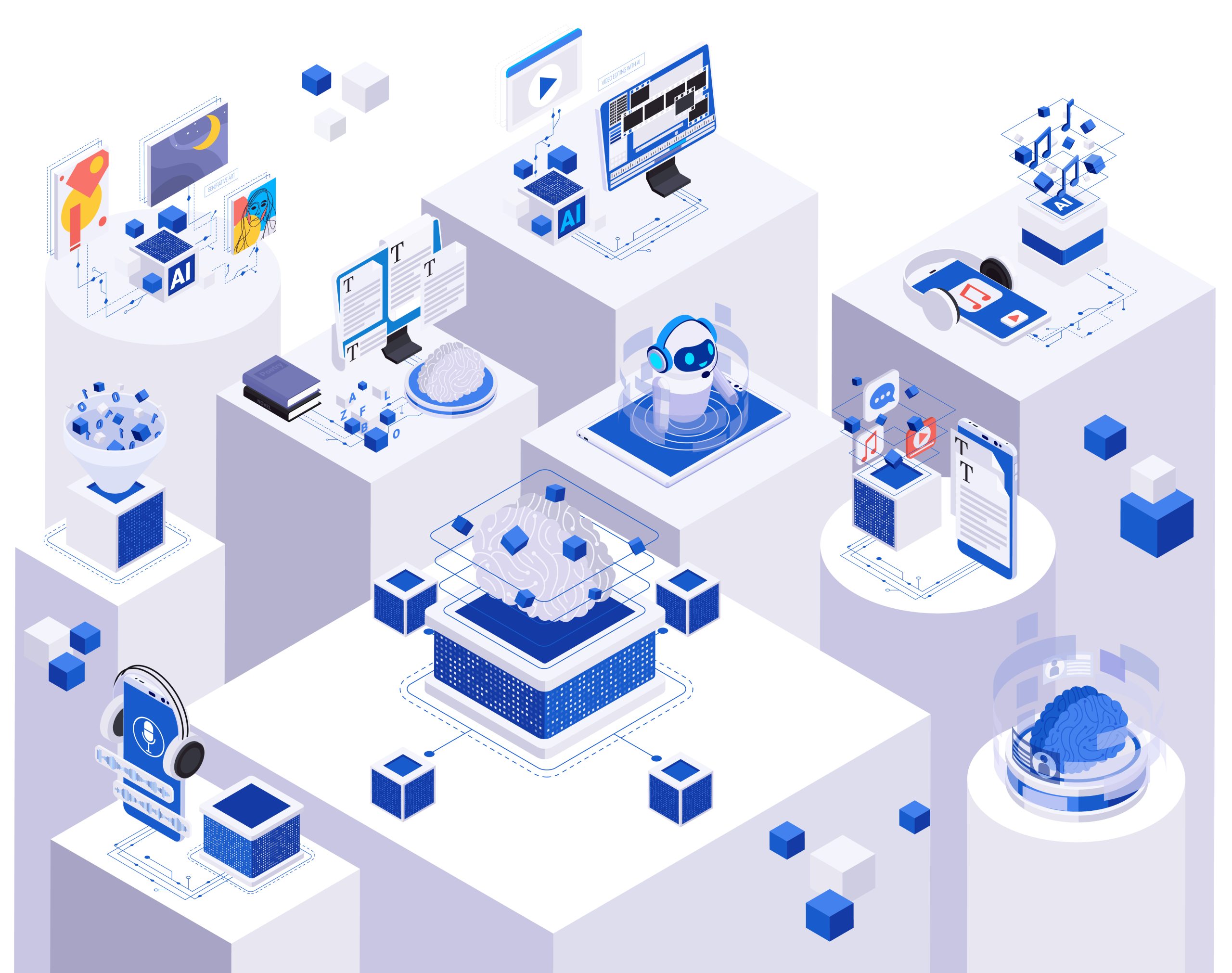The speed at which technology evolves in today’s digital era is nothing short of remarkable. One area undergoing significant transformation is AI workflow automation in content creation. Companies worldwide are seeking innovative solutions to enhance efficiency, accuracy, and productivity in their content strategies.
Leading this transformation is Google. This pillar post explores Google’s cutting-edge approach to AI workflow automation in content creation. It highlights the new standards it sets and their implications for content strategists, product managers, and CTOs alike.
Exploring Google’s AI Workflow Automation Landscape
Google has long been recognized for its ability to harness AI and machine learning technologies to improve various workflows, including content creation. From its intelligent algorithms that suggest search queries to its advanced language models like BERT, Google’s commitment to AI is unrivaled.
However, Google’s innovative approach doesn’t stop there. The company has continued to invest in tools like Google Cloud AI. These tools provide users with powerful resources to automate and enhance content creation processes. Leveraging Google’s advanced AI models, they allow for more personalized, accurate, and efficient content production.
5 Essential Components of Google’s AI Workflow Automation
Google’s AI automates content creation with 5 key elements:
- Automated Content Generation: AI creates dynamic content (articles, reports) quickly.
- Personalized User Experience: AI tailors content to user preferences for better engagement. Tools like Bardeen offer personalized automation sequences based on user interactions.
- Enhanced SEO Optimization: AI optimizes content for search visibility by understanding user intent. See Ayanza’s article for AI-assisted SEO tools.
- Efficient Content Management: AI streamlines content organization, scheduling, and distribution.
- Continuous Learning and Improvement: AI analyzes performance to improve content strategy.
FAQs About AI Workflow Automation in Content Creation

How does AI workflow automation improve content quality?
AI can analyze extensive data sets to identify what content performs well, suggesting topics and formats that are likely to engage audiences better.
Can AI replace human content creators?
While AI significantly enhances content creation processes, it cannot replace the creativity and emotional intelligence of human creators. Instead, it serves as a tool to augment their capabilities.
Is AI content SEO-friendly?
Yes, AI tools can optimize content for SEO by analyzing search engine algorithms and trends to suggest keywords and structures that improve search ranking.
How secure is AI in content creation workflows?
AI tools incorporate advanced security measures to protect data integrity, though organizations should always ensure they’re using trusted, verified AI solutions.
A Quick Cheat Sheet for Implementing Google’s AI in Your Workflow

For those considering integrating AI workflow automation into their content creation process, here’s a handy guide:
- Choose the Right Tools: Select AI technologies that align with your content goals and integrate seamlessly with your current tools.
- Define Your Objectives: Clearly outline what you aim to achieve with AI, whether it’s boosting productivity, enhancing content quality, or improving SEO.
- Train Your Team: Ensure your content team understands how to use AI tools effectively for content creation and optimization.
- Monitor Performance: Keep track of your AI’s impact on content strategy, making adjustments based on analytics and insights provided by your AI tools.
A Real Success Story: How Forbes Utilized Google’s AI for Content Enhancement

Facing the challenges of the digital publishing landscape, Forbes partnered with Google to leverage AI and cloud technologies for a successful digital transformation. This collaboration focused on enhancing content creation through AI-powered insights.
Forbes utilized Google Cloud AI’s pre-trained models to analyze its vast editorial archive and current market trends. These AI-powered insights equipped Forbes writers with valuable suggestions on topics, headlines, and content improvement strategies. Furthermore, Natural Language APIs were employed to enrich content, assess sentiment, and personalize writer recommendations.
Beyond content creation, Forbes capitalized on BigQuery and Looker Studio for data storage, analysis, and visualization. BigQuery’s scalability allowed Forbes to store and analyze massive datasets encompassing editorial, revenue, and other business-critical information. Looker Studio then transformed this data into interactive dashboards and detailed reports, empowering data-driven decision-making and deeper audience insights. This strategic use of Google’s AI and cloud technologies has streamlined Forbes’ content creation process, making it more efficient and data-driven.
Predictions for the Future of AI in Content Creation
The future of AI in content creation promises a dynamic landscape:
- Generative AI Takes Center Stage: Imagine AI churning out content drafts and sparking ideas based on ongoing trends. This will significantly speed up the creative process.
- Hyper-Personalization on Steroids: AI will personalize content to an unprecedented degree, delivering precisely what each audience segment craves.
- AI Paints a Picture: AI tools will transform how visuals are produced, generating high-quality graphics and videos with ease.
- Voice Search Gets Smarter: As voice search takes hold, AI will adapt content to seamlessly answer spoken queries.
- AI, the Master Distributor: Distribution won’t be left behind. AI will optimize content for maximum reach and engagement across various platforms.
Conclusion
The landscape of content creation is undergoing a seismic shift with AI workflow automation. This technology, exemplified by Google’s innovative approach, offers a powerful toolkit. AI can not only boost efficiency and personalization but also elevate content quality to new heights.
As the game changes, embracing AI in content workflows will become a necessity for remaining competitive in the digital age. For content strategists, product managers, and CTOs, the future is clear: the time to explore and implement AI is now.
References
- Bardeen: Offers personalized automation sequences for improved user engagement.
- Ayanza: Provides SEO tools aided by AI for better content visibility.
- Google Cloud AI: Google’s platform for AI and machine learning tools.
- The Agentic Startup Manifesto - June 8, 2025
- Remote Hiring in 2025 - April 5, 2025
- Burnout in Remote Teams: How It’s Draining Your Profits - January 27, 2025
